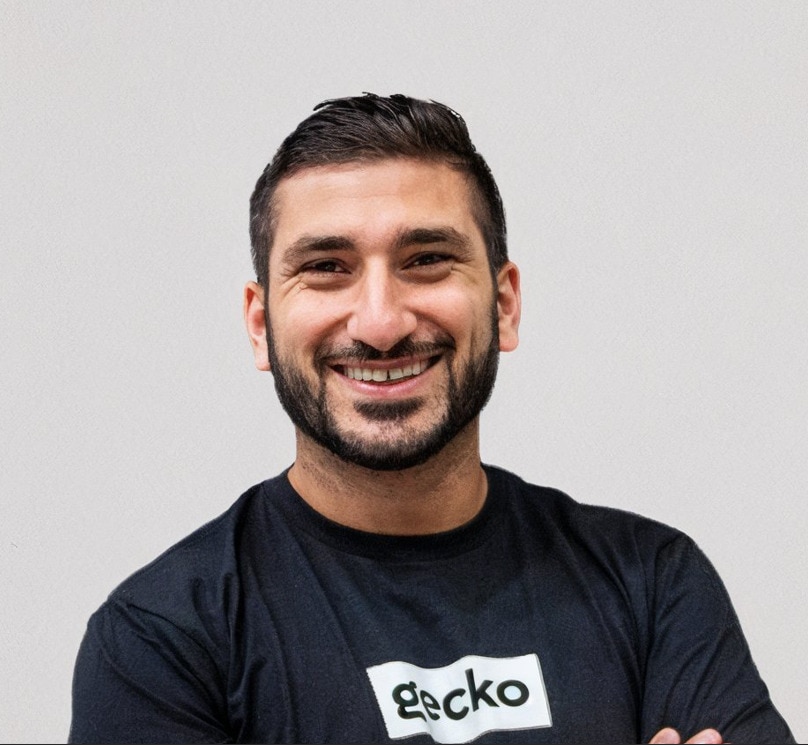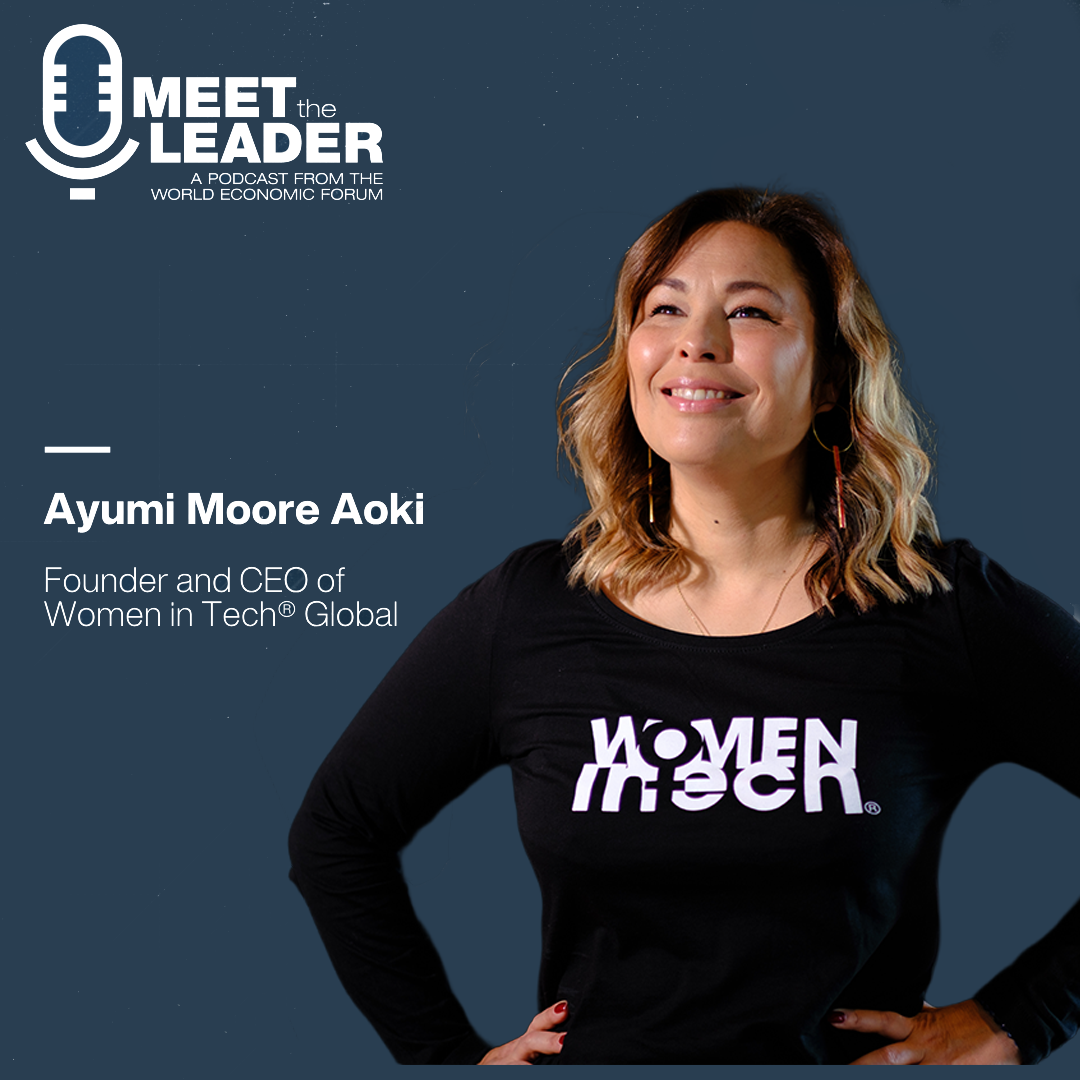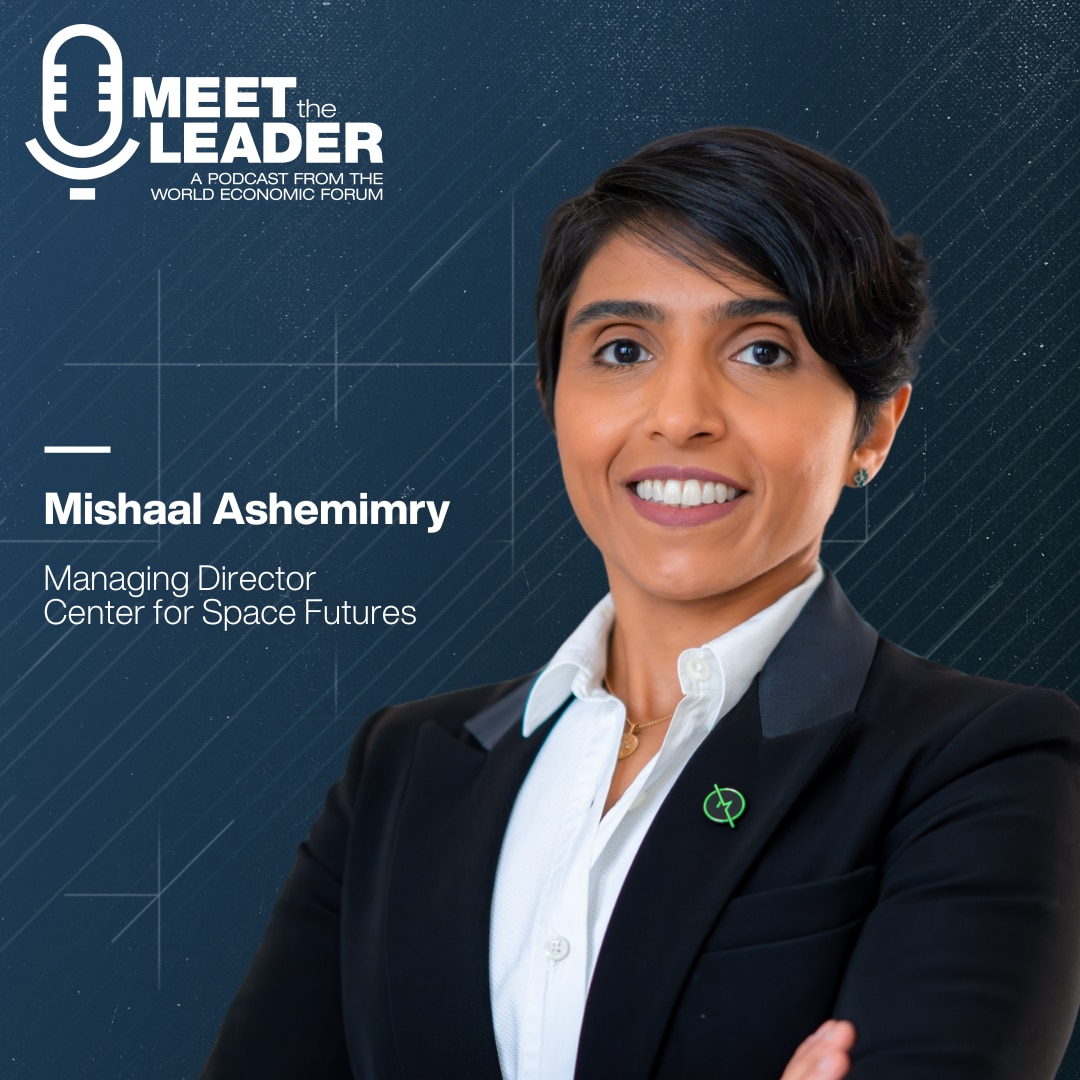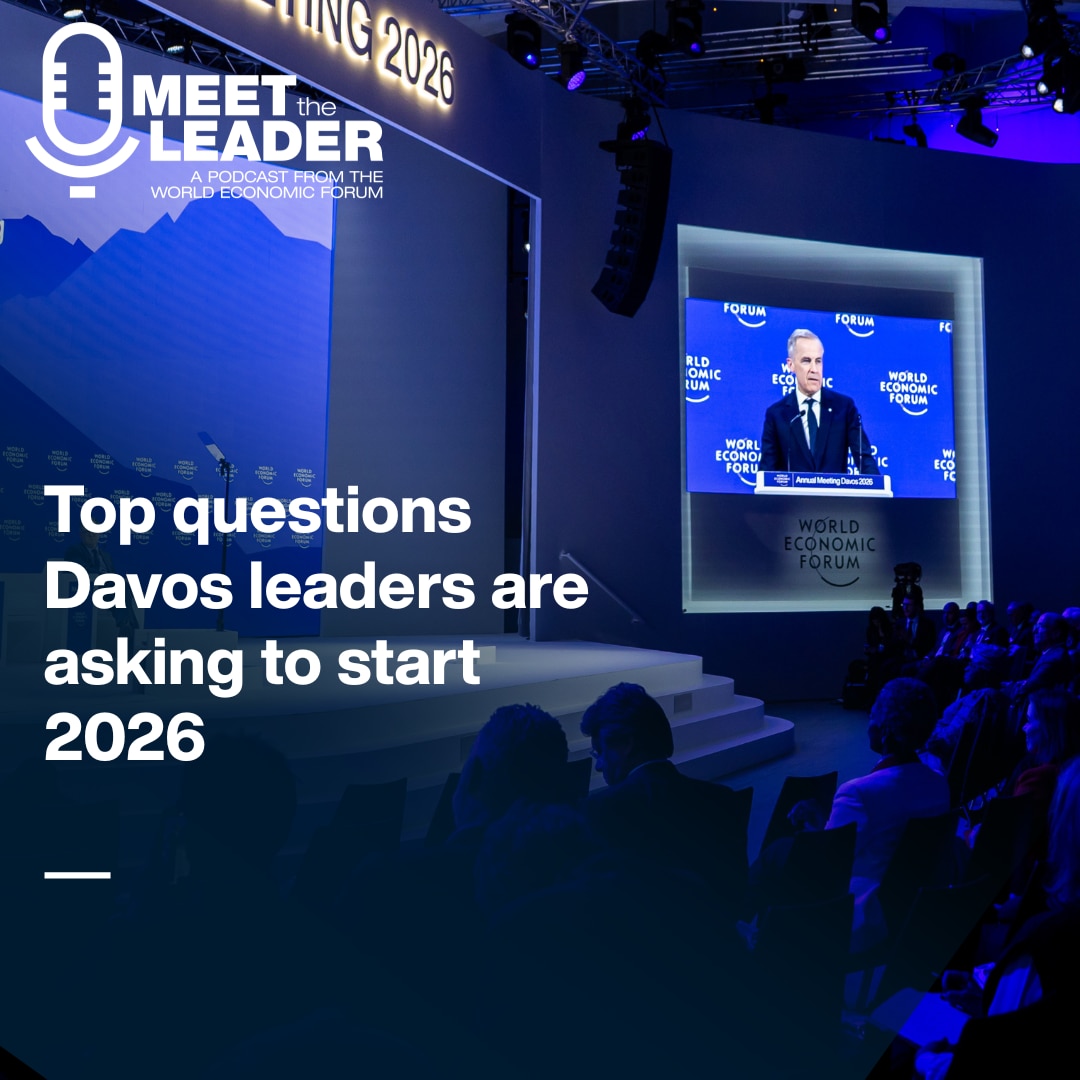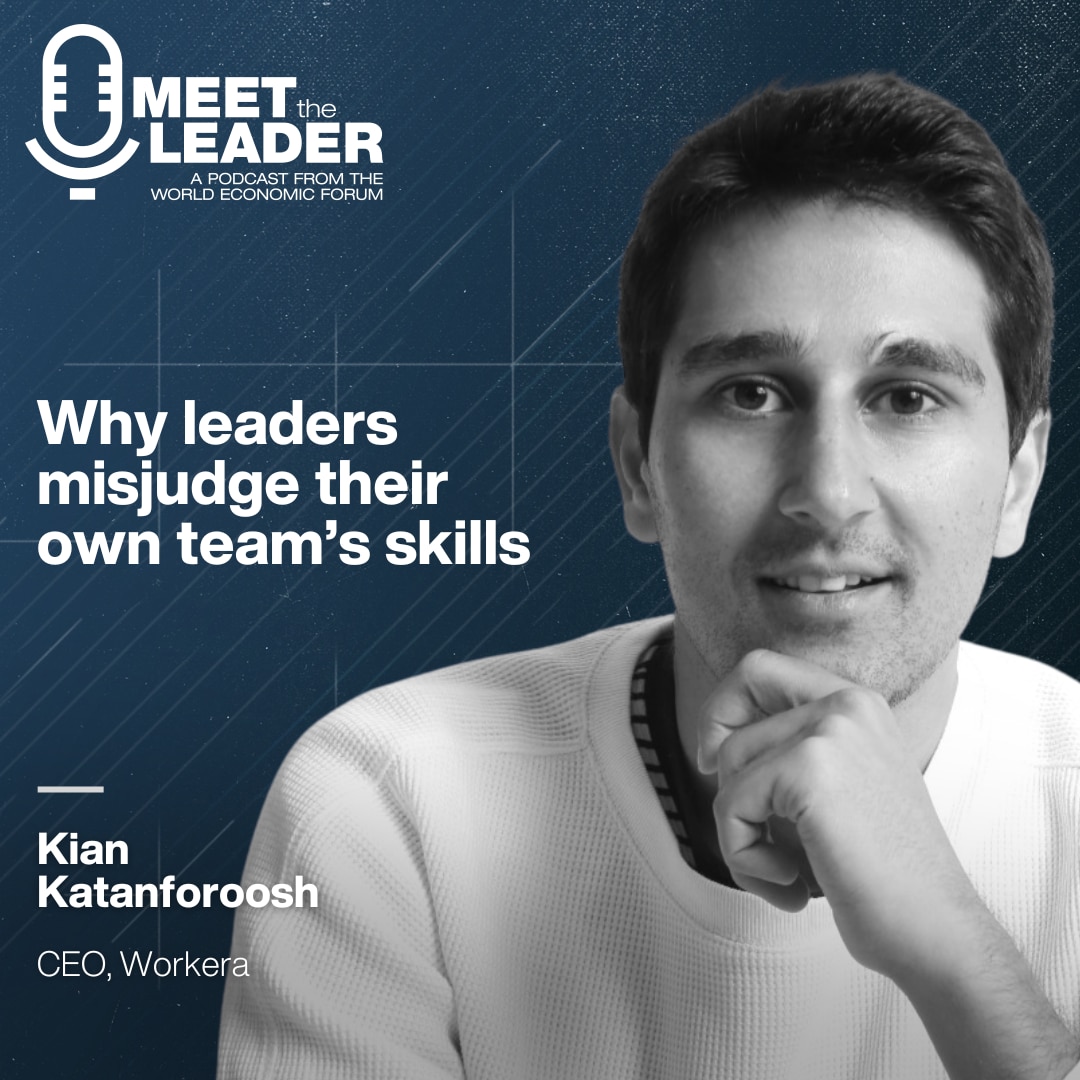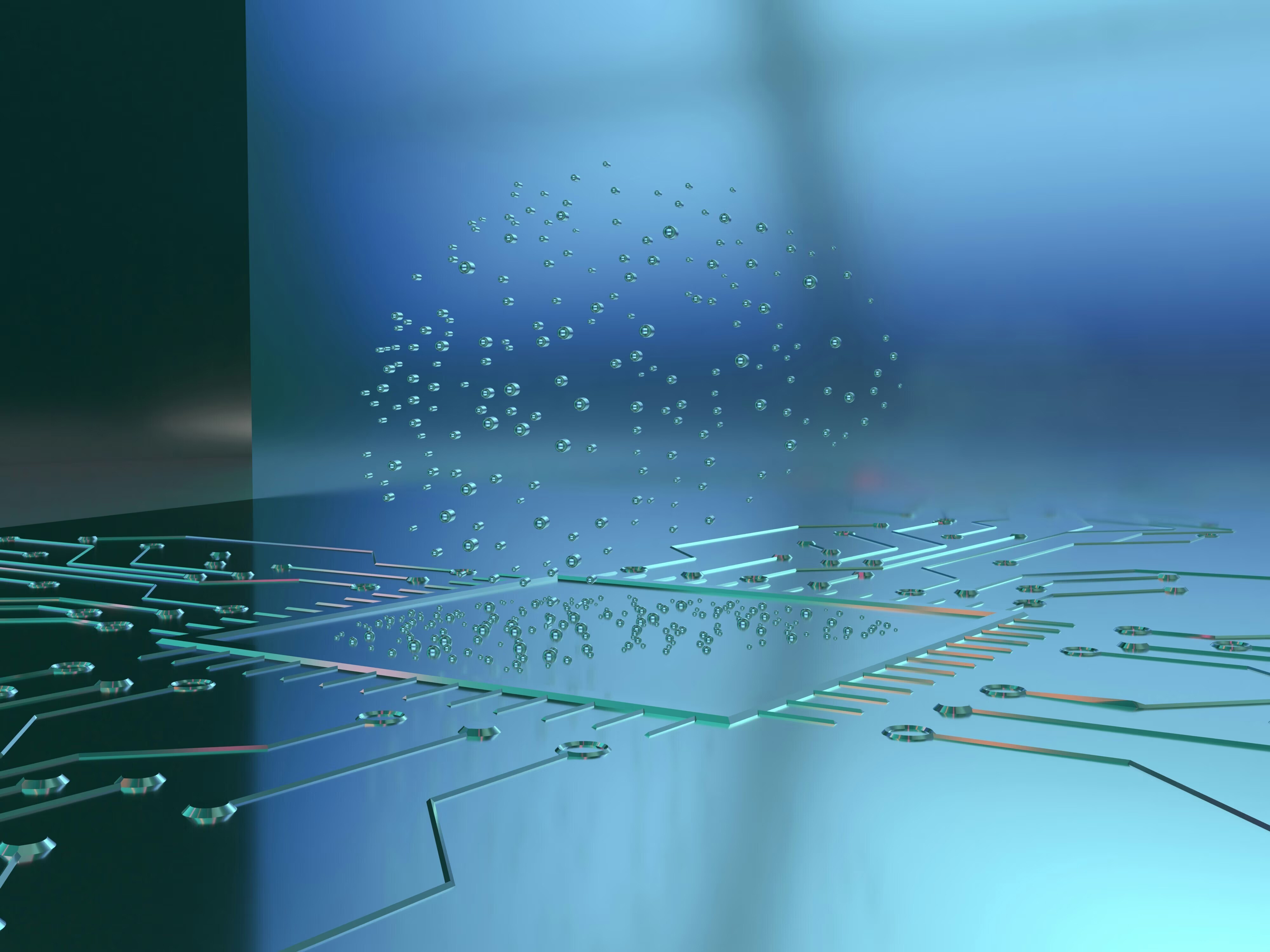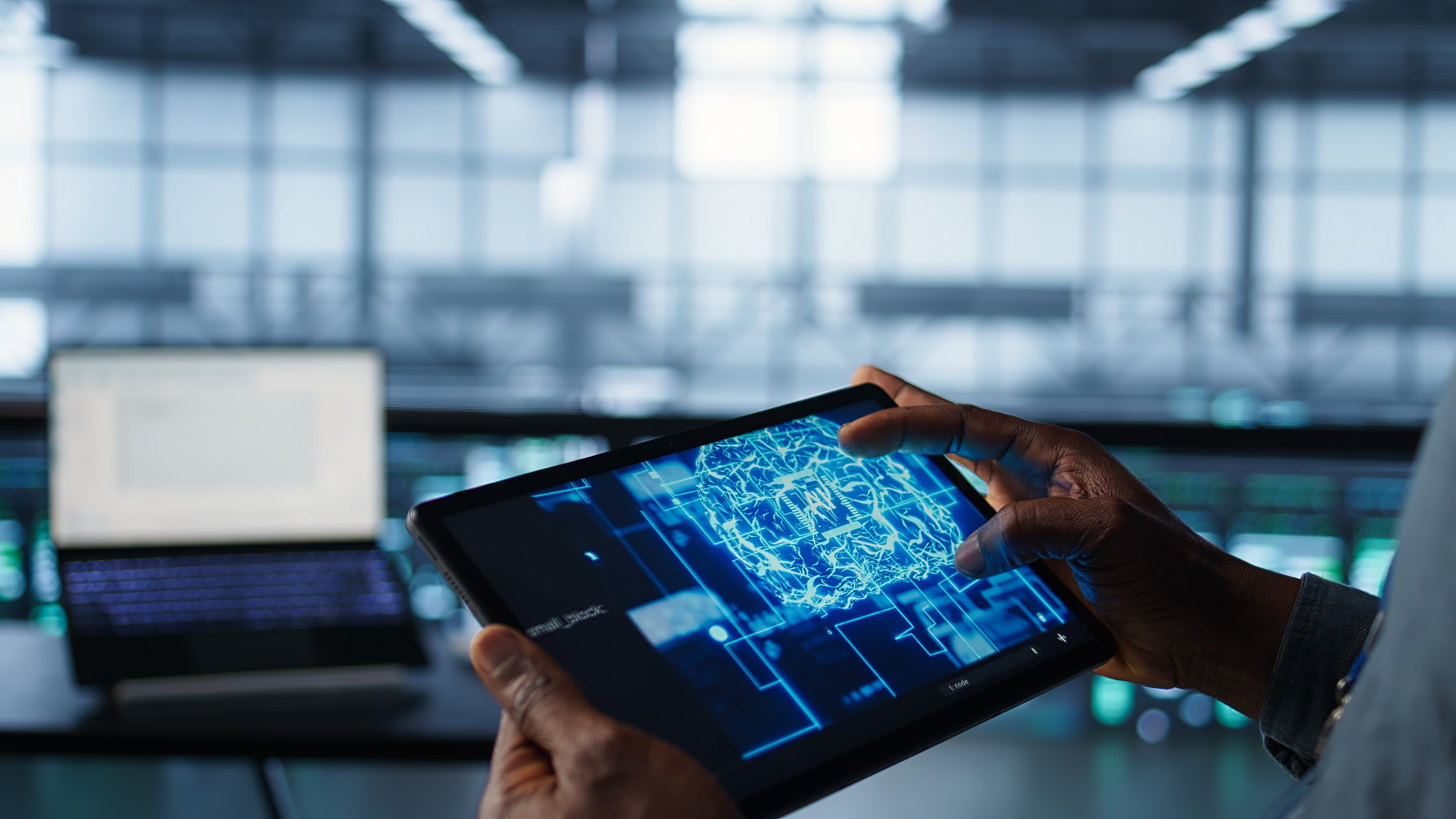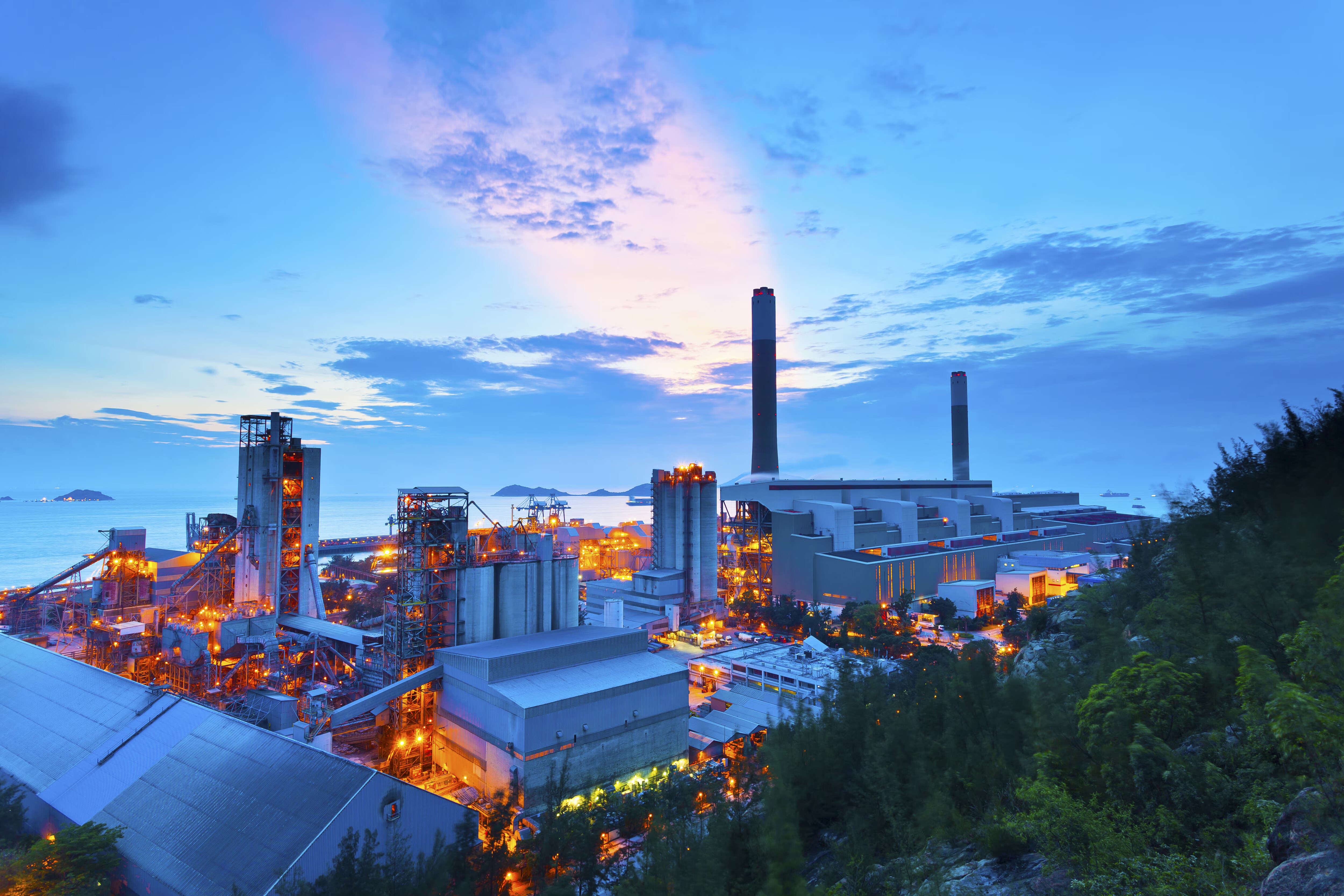Bridging AI's 'woeful' data gap can save lives and tackle climate change: Gecko Robotics
ポッドキャスト・トランスクリプト
Jake Loosararian, Gecko Robotics: In New York [State], there's like 17,000 bridges. Only about 17 of those bridges are not in need of immediate repairs. And the reality is, it's actually quite hard to know what bridges are the most high priority. So the best way to understand that is you go out and collect the information in data sets. And typically it's done by humans. The information that that's being fed into, whatever someone is claiming to be an artificial intelligence system, t's coming off of a person on a rope that is taking 100 ultrasonic readings similar to how you do ultrasounds for a pregnancy. And they're putting that piece of that on a piece of paper and then claiming that they know exactly where they took that data and that the data was correct. Me and you can obviously tell it's very limited information and data and also isn't interrogated. Our systems and data is so woefully prepared to leverage the technology is simply that fact.
I think where robotics and artificial intelligence meet beautifully is this convergence of the physical and digital worlds to begin to unlock ways that our official intelligence can actually benefit me and you every single day outside of just a, you know, a chat system.
If you want to talk about governance and decision making, high fidelity data is the way to accomplish that. So that's the world I want to live in.
Linda Lacina, Meet The Leader: Welcome to Meet the Leader. I am Linda Lacina and I am very excited to welcome Jake Loosararian here. He is the CEO of the startup Gecko Robotics. And that is a startup that he built up to a nine-figure business. And he is going to talk to us a little bit about the process of building that, but also something a little bit more interesting and important: The fact that we can improve the way that we do data collection so that we can better leverage AI in the future and also improve big problems like the net-zero transition and infrastructure.
How are you, Jake?
Jake Loosararian, Gecko Robotics: I'm fantastic.
Linda Lacina, Meet The Leader: So why don't we get started and why don't we just talk a little bit about data collection. If you can set the stage for us, what is the state of data collection for AI right now?
Jake Loosararian, Gecko Robotics: It's such a broad question. Well, I'll speak specifically to the more pragmatic vantage, I guess, that’s, like in the world of, let's say, like physical, physical world things, atoms, the world that we rely on every day, whether it's in the manufacturing sector or the energy sector, the military sector, these kinds of sectors.
When I think about the most impactful things that artificial intelligence will do as it relates to things outside of asking ChatGPT how to make the best sticky toffee pudding or something like that. It's actually how does it drive industry both environmental. How does it drive efficiencies? How does it meet the moment as it relates to energy and AI infrastructure that's going to define the next 10 years? And then how does it affect things like robotics? This year's been labeled the Year of the Robot, and that's been, you know, it's an exciting moment where software and hardware are merging once again.
But I think what is very clear to me is that the state of the world as it relates to the data that we have, as it relates to these sectors is woefully, is woefully unprepared for the technologies like optimizations and LLMs simply because we just don't have enough high-fidelity data as it relates to the world in the atomic world. So, the physical world. We don't actually know what the, what the, how reliable we should be expecting our grid to be, how reliable our grids or dams are to environmental changes, for example, or new loads. There's a lot of information that you need to be able to have smart infrastructure to be able to build an infrastructure correctly and ensure reliability for human beings.
Where robotics and artificial intelligence meet beautifully is this convergence of the physical and digital worlds to begin to unlock ways that artificial intelligence can actually benefit me and you every single day outside of just a chat system
”Linda Lacina, Meet The Leader There's gaps in the data that we collect. Can you give us a sense of what those gaps are? What's contributing to this problem?
Jake Loosararian, Gecko Robotics: Yeah. So let's take an example like a bridge, you know, a bridge. There's, you know, there's in New York [state] there is like 17,000 bridges, something like that. It would probably surprise people in New York to know that only about 17 of those bridges are not in need of immediate repairs.
Now, you might question like, wow, that's that's crazy to understand a reality like that, I wonder what we are doing about it. And the reality is we, it's actually quite hard to know what bridges are the most important ones to fix, which ones are the most high priorities in terms of, you know, environmental or loads that are going to change, that we should be spending more or less on.
And so, you begin to wonder, like, how is AI helping me there? And I think that's where you have to begin to question, you know, when people talk about how AI will change the world, well will it really? And how can it when we don't even know how, how safe a bridge is, for example? I mean, that's a very practical example that we experience every single day. It's a really real-world example. So, the best way to understand that is you have to go out and collect the information in data sets. And typically, it's done by humans, by the way, as it relates to the health of structures like a bridge.
Now, once you have that, amazing, now you can do some really cool stuff with artificial intelligence and software and model in interesting ways and, you know, figure out how to take a D infrastructure grade in the US to a B. But, we don't have that information.
And so, I think where robotics and artificial intelligence meet beautifully is this convergence of the physical and digital worlds to begin to unlock ways that artificial intelligence can actually benefit me and you every single day outside of just, you know, a chat system.
I want to live in a world where you never get surprised by the physical world failing you at the worst times
”Linda Lacina, Meet The Leader: How would AI be fed the wrong information? Is there a tool that maybe would be looking at bridges or sort of helping city leaders or municipal agencies or things like that. What, what would that be and what sort of problems would come down the line with this bridge example, maybe?
Jake Loosararian, Gecko Robotics: Sure. So, for the bridge example, the information that that's being fed into whatever someone is claiming to be an artificial intelligence system is, it's coming off of a person on a rope that is taking 100 ultrasonic readings, similar to how you do ultrasounds for a pregnancy. And they're putting that piece of that on a piece of paper and then claiming that they know exactly where they took that data and that the data was correct. And there's, you know, they might take 100 readings out of a potential amount of damage area of miles.
So, I me and you can obviously tell, it's very limited information and data and also it’s not interrogated. You can’t interrogate that the data was actually correct. And so, I mean, one practical example of artificial intelligence and how our systems and data is so woefully unprepared to leverage the technology is simply that fact.
With robotics, you can actually gather millions, terabytes of information and data, visual ultrasonic, LIDAR. And that's what the robots that Gecko creates and integrates does. And then you can digitally represent a world, the physical world, inside a software platform we call Cantilever, a data platform, to begin to understand how do I deploy the billion dollars that I have to ensure that the bridge doesn't collapse when a mother and her kids are commuting over that bridge that day.
This example applies to so many different sectors, you just, you know, look outside your window and you see buildings that are, you know, that hopefully won't collapse. There's refineries that have explosions or tanks that leak oil into rivers or, you know.
All these things contribute to something that me and my team, you know, plaster on our walls. And that is there's an 18% impact, in the US alone, on emissions because things just fail when they're not supposed to. If you can eliminate things that fail when they’re not supposed to, 18% by 2030 is the environmental impact you can have. Why aren't we all talking about that? That is something that doesn't take a investment of 10 years of new technology that may or may not exist. And it's just using robotics and artificial intelligence that we've built today. And so, I want to live in a world where you never get surprised by the physical world failing you at the worst times.
I want to live in a world where you never get surprised by the physical world failing you at the worst times.
”Linda Lacina, Meet The Leader: Just to dig in on that 18% number for folks, so they can illustrate it, we can illustrate for them, because they're surprised maybe they might have to rebuild a building or a bridge or something entirely as opposed to repair it over time, leading to excess construction emissions and things like that. Is that what you're getting at?
Jake Loosararian, Gecko Robotics: That's not even taking into consideration that. It's things like, you know, every single day you can, if you want to, you can actually find some report about somewhere in the world where there's a pipeline explosion at some oil and gas facility. Or there's, there's oil leaking from some crude oil tank into a river or into an existing settlement. You know, there’s a bridge collapsing, a dam, a dam failing.
It's these types of things that end up lead to, end up leading to the 18% found by Rho Impact, that was the group that did the study. That number is quite higher when you begin to think about the things that you're discussing.
How can you get ROI from robotics? The most clear way is to reduce death, reduce lack of efficiencies and mistakes in some of the most critical industries
”Linda Lacina, Meet The Leader: And we'll get into Gecko and how you guys are helping to sort of solve this problem.
But what generally, globally is sort of this slowing answers to this and apply, you know, slowing the application of robotics to these issues?
Jake Loosararian, Gecko Robotics: Outside of the complexities of robotics, which are quite large. I'm an electrical engineering background, so I've been working on robots, you know, for couple of decades. And outside of the the complexity of building actuation, actuators that are very, very fine motor. You know, they're doing like things like spinning your hands that are like really tough engineering problems.
But outside of the complexities of robotics and the cost of robotics, it is what is the robot doing that actually helps benefit and justify some new way of operating, whether it's operating, how I do chores at my home or it's operating a facility that's manufacturing or mining – and anywhere in-between. We talk about a world maybe where Optimus and other humanoid robots are, you know, doing things like folding our laundry and taking our kids to school. And while that's an exciting opportunity, a new, new paradigm to live in, my goodness, can you can you justify spending $30,000 on something that I already have – a washing machine that, I can hire help, I can do it myself?
So I think the real question comes down to for me, how can you get ROI from robotics? And the most clear way is to reduce death, reduce lack of efficiencies and mistakes in some of the most critical industries. And when I talk about this, I talk about you need a data platform that can actually put to use humanoids and mobile robots, the things that we build, for example, at Gecko, but also things that other companies like Tesla and Figaro build.
I am so excited for a world where robotics is, is, is affecting and impacting our lives. I just believe that it's been affecting and impacting our lives behind the scenes, especially because I'm still a little bit scared of a robot in my house walking around – it might turn on me.
So, so, you know, for the most part, I think that's what it comes down to for me. Can you get a high enough ROI out of a robot to justify the shift in the way that you operate day to day and the trust that you put in that robot? And also, the things that it can actually do.
And all those sensors are such amazing technologies that gather physical world data and convert them into bits. The question is how do you turn those bits into useful bits that drive some new efficiency, at a power plant, for example, that reduces the chance of an explosion that could be horrible for the environment or for the people that are operating it and kill them?
These are the ways that I think robotics and AI transform fundamentally our world, and we actually need them to because we're in a place where we don't have enough humans to actually do this, because those humans, they're so incredibly skilled, and most of them are retiring.
Linda Lacina, Meet The Leader: So, can you tell me a little bit about Gecko Robotics and the problem that it's solving?
Jake Loosararian, Gecko Robotics: Sure. So, a lot of the things I've been describing are very much in line with what Gecko was built for. I started the company because I was given the opportunity to go to a power plant when I was in college and see firsthand how power was made inside of a power plant boiler, which is a place that gets really hot in terms of water and the steam. And the engineering manager that was running the facility said this power plant is shut down 40% of the year because the physical structures just fail and we don't know how to stop them from failing. And the only way to stop them failing that they tried was sending a human that was dangling 100ft up in the air and gathering pictures and using an ultrasonic sensor to look at the structural integrity of steel. Whoa, That's crazy. And guess what? That human a year before fell and died in the very spot I was standing.
And so, I was just floored by the problem. And I wondered what else around us do we rely on every single day that might just fail us? I don't know the health of the built world. I really want to figure that out because it could unlock something quite extraordinary. So now what we've done is we've, we've had now 500,000 assets that we've gathered information and data on their model inside of our data platform called Cantilever.
I don't know the health of the built world. I really want to figure that out because it could unlock something quite extraordinary
”And Cantilever is where all the robot data goes, we use machine, machine learning and localization and automation and with the robotics to get the data, localize it and clean it so that it's highest fidelity to build foundational models that can predict when things fail and how to make them operate most efficiently and effectively for some of the biggest companies in the world. Whether that be the mining sector, the metals sector, the energy sector, the military sector, the public infrastructure sector, we're there. And we're gathering all this information and data to not just figure out how to make things more reliable and run more efficiently, because we’re gathering operationally too, but we're also figuring out how to build smarter things.
When we talk about AI changing everything – it won't change a damn thing unless you have the information that that we're collecting
”Linda Lacina, Meet The Leader: Tell us a little bit about, so if this was going to be deployed somewhere, what are the steps that happens when you guys are, to help us understand exactly sort of how the technology works and how it's applied?
Jake Loosararian, Gecko Robotics: Yeah, so a customer will say, hey, we want, we’re want to deploy your technology stack across, let's say, you know, they've got a couple thousand assets. We're going to, we're going to try it out for 50 of those assets. Maybe they're piping and maybe they're a digester, maybe they're distillation towers. All these different types of, maybe they’re the sides of ships or bridges.
We’ll deploy our robotics that we are determining are collecting the data layers, which we call them, the data layers that will help us construct a digital twin of that structure inside of Cantilever. And then we're going to layer on information as it relates to the metadata on that asset, when it was made, who made it, all the different materials that were part of the construction, along with what is the health of it by doing a complete sonogram basically, a complete test of the integrity of that.
And we're going to save all the acoustic signals that come with that, save all of the visual images that we're taking, and videos, which is another new layer, we're going to take all the LIDAR data to help stitch together those images to create a beautiful, a beautiful model to be able to look at that looks real. We're going to add thermal, thermal imaging. We're going to add a couple of different things that, you know, are really important to be able to understand how to get the best performance and longevity out of those assets.
And we're going to help the customer, with all this information, be able to determine if they need to deploy capital to make that asset not fail or could that asset, if you repair it in strategic locations, make that asset last 10 to 20 to 30 years longer than it ever should have. Which helps their bottom line and the margin, for example, of how much it costs to produce something.
We're going to help optimize and say you can actually run at higher, higher loads without potentially causing huge catastrophic failure because we know what the effects will be using artificial intelligence on the asset. If you want to be able to produce more power because guess what? Everyone's really cold and everyone’s using power and and you need it to ensure there's no blackouts or brownouts, we can do that while also ensuring that there's a risk calculation associated with that.
That has never been possible before without the data that we've collected. And so when we talk about optimizations and AI changing everything, in the back of my head I'm thinking, it won't change a damn thing unless you have the information that that we're collecting, that right now we're the only ones doing it.
Data is required. It is necessary to ensure that we're operating with high amounts of trust.
”Linda Lacina, Meet The Leader: Are there examples of disasters that Gecko has helped to prevent because you guys have been able to give somebody a little bit better information on something to fix?
Jake Loosararian, Gecko Robotics: Yes, two examples. One is a distillation tower at a refinery, which 60% of a company, a refinery;s product will run through that. There were micro cracks inside of one of the columns that we were able to determine and tell the customer. And they didn't they didn't believe it because no one had ever said that and told them that before. And if we were to stop them, they would take down, you know, some of, some of their production.
And we reverified and re-ran all of our algorithms and said this is actually a really big problem. And if it would have, left unattended by about another month, we estimated, it would have caused one of the biggest explosions that was ever reported in the US at a refinery. That we prevented that -- and that would not just taken down 60% of the facility's production, so millions and millions of dollars for who knows how long, but it would have killed people. It would have caused an environmental catastrophe that would have been just horrible as relates to numbers. It's crazy we live in a world where that could happen, and you could go to work and potentially lose your life, and that shouldn't exist.
And then another, another example is there was a company in the energy sector. People were gathering information by hand and reporting, you know, that certain tanks were beyond repair and they needed to spend hundreds of millions of dollars repairing. And then we came in and determined that actually what they're being told about things that were broken was actually untrue. I think that happens a lot. And I think this is one of those things where we talked about how much we have to spend on infrastructure, and maybe we do. But I also believe that if you are uninformed by data, it's the blind leading the blind. And at worst it is the people that are incentivized to spend a lot that are leading the blind. And that's typically what you get, whether it's in government or in private industry.
So, data is required. It is necessary to ensure that we're operating with high amounts of trust. If you want to talk about governance and decision-making, data is the, high-fidelity data is the way to accomplish that. So that's the world I want to live in.
Linda Lacina, Meet The Leader: People have very much, of course, embraced the idea that AI is going to be a game-changing technology. But there's still a lot of gaps and how do we actually deploy it, use it, integrate it, things like that.
In your mind, what is the main thing, the number one thing that leaders in the government, maybe even in civil society, what do they need to know about data collection that is going to be key as we sort of look at tackling some of these problems?
Jake Loosararian, Gecko Robotics: It's a good question. Whenever someone talks about the impact that artificial intelligence will have and is having on your company or your sector or in general, just how they blanket language use the term AI does X, Y, Z. I, I want to, I want to empower whoever is listening to ask the follow-up question: What is behind the engine that you're saying is delivering all this impact? What is behind your AI? Is there is there something there I should trust? What is it being fed on?
If you are feeding any sort of optimization engine or you can call it AI, if you aren't feeding it the protein it needs to be able to do its job. It will not, it is going to spit out wrong information and you're going to be sold a, you’re going to be sold a packet of goods that is going to leave you wanting and to leave you frustrated. Just like the promise of digital transformation the last 10 years in the industrial sectors, for example. They've been burned time and time again by companies that me and you know are household names.
This is going to happen again and again. The question you have to ask is, what is the fidelity of the data? Where are you getting it? And, and why should I trust your data? I think this is exactly what's happening right now in lawsuits in some of the biggest AI companies in the world out there. And I hear time and time again from customers that I don't trust the promise of AI because it just hasn't moved any needle worth a damn. And so, yeah, it's, it's a question I’m excited to ask because I know where my data comes from.
I was just so compelled by trying to solve a problem that seemed really important. It didn't matter if I went broke. And so I did.
”Linda Lacina, Meet The Leader: No, absolutely. You talked a little bit about the, the idea that led to Gecko Robotics. But a lot of people were in that class with you, a lot of people also visited the place where you stood in that place, and not all of them started a robotics startup, right?
What made you feel like, hey, not only is there a really compelling problem to solve here, but I'm the guy who needs to do it and I need to do it now.
Jake Loosararian, Gecko Robotics: Yeah, well funny enough, I actually was, there wasn’t a lot of people that were standing in the room and this was a power plant boiler. I'm 34 years old. What younger engineer is excited to go work in the power sector? Not many, right. Which is part of the problem.
But I got to stand in a place that not many people stand. And I was so thankful for that because I got to see something that was in desperate need of, of technology and the merging of the hardware and software realm that has just been ignored or misunderstood by my Silicon Valley peers. And it was, you know, I had to test this resolve by going completely broke, by bootstrapping the company.
So, I was just so, so compelled by trying to solve a problem that seemed really important. It didn't matter if I went broke. And so I did. I had like 100 bucks to my name before someone offered an acquisition and then this group called Y Combinator gave me a first check back in 2016 to continue the vision. I turned down the acquisition, you know, that was like a pretty substantial amount, you know, for a broke kid because it was just like, it's too important a problem to not go solve.
And then, you know, you begin to see that the kind of effect it is having now. And, you know, it's just I'm just very privileged to be able to work on a problem like this for -- I have a client that's just been ignored and not sell them, you know, sell them something that can actually help them and work alongside them to build the best technology in the world. And that is damn motivating. And it's something that is very unique, actually, to Gecko.
Linda Lacina, Meet The Leader: Let's talk a little bit about the bootstrapping process, right? You, you worked a little bit, some long days to do that. Can you tell us about that? What did you do to earn that money to make sure that you could, you could you could build your little stockpile, your war chest?
Jake Loosararian, Gecko Robotics: Yeah, well, whenever you building a company there is a, you know you're going to be kind of a little bit crazy I think to, to endure like the kind of ups and downs that come with it. You know, so the darkest days are just like the days when you're just like, you know, you're like, curled up and crying about like, I can't believe this is my life right now. I'm like, soldering in a in a dirty environment with, you know, weld charge, like, streaming down my back and a hard hat and steel toed boots, just covered in soot. It's just horrible.
So, my experience maybe not the same as a lot of founders, but anyway, I think like, you know, you begin to like questions like, what the heck? Why did I put myself in this situation? I'm an engineer. What we learn from that is the thing you probably learned growing up, it's like, you know what, do the hard things. The hard things will help you refine who you are, you will become a better version of the person that you know you always believed you could be and want to be.
And that's inspiring. It's like you do things that are bigger, you feel are bigger than yourself. You go through the uncomfortable stuff, you know, believing in the thing that maybe you want, that you had convictions on for like a good reason. And then you have like some really awesome people that, you know, just give you that little encouragement that you need to keep going. And maybe you can build something like quite incredible that changes the world in a really impactful way. And that's like, that's worth the risk, you know?
ASKED TO DELETE: You know, so I think that's, you know, that was, that was, that was one of those things that kept me going, I think, the early days. And then, I think that that Gecko has literally the best employees in the world. I mean there's a .08 percent acceptance rate for a company. It's like crazy to get in.
So, I think that's also very motivating now as you get to work on the most important problems, I think, facing our world, very existential, with the best people in the world who are all doing it because they want to work on some of the important problems because they can definitely make more money somewhere else. And I think that's a very unique culture.
Linda Lacina, Meet The Leader: And how many hours a week were you working when you were trying to save that nest egg?
Jake Loosararian, Gecko Robotics: Oh yeah. Yeah. I mean, I, I don't think there was a time that I wasn't working, like maybe sleeping four or five hours a night. Yeah. So, like seven days a week, four or five hours of sleep a night. My girlfriend, now wife, at the time, like, our dates would be like, you know, soldering in the lab.
So, yeah, so like, it's a, it was a lot of it was a lot of work for, five or six years. I get a little more sleep now. ASKED TO DELETE: But, you know, but it's like, I get, I just I really enjoy building this company and it's, it's really important work..
Linda Lacina, Meet The Leader: And how much were you able to save doing that over that period of time?
Jake Loosararian, Gecko Robotics: I probably had saved up like $30,000. And yeah, that went pretty fast over the course of three years building robots. And then I got a couple of customers to pay me some good amounts that we reinvested back into the company. So maybe like $50 to 60,000, like in the early days. And then, and then the first check was like, $120,000. And I was like, this is so much money.
So now we've raised like 250 at this point now – million that is – and the company’s, the company’s, you know, over, over 350, something like that, doubling size this year. [Editor's note: Since the recording, Gecko raised money in a Series D funding round - this raised a further $125m and valued Gecko at $1.25 billion.].So anyway, it's been, it's a, it's been an exciting journey, but a lot of ups and downs in the roller coaster.
Linda Lacina, Meet The Leader: So, many entrepreneurs, they, they get started because they innovate building off of a strength they already have, right? So, in this case, I'm going to throw something out and pretend that, I assume it's hard work, right? You're not afraid of long hours, right? But that's not sustainable over time.
ASKED TO DELETE: What was the moment, how do you change now, like, how do, how do you, ecause CEOs have to prioritize. They've also manage their energy. What, what have you. How do you work differently now than you did at the beginning?
Jake Loosararian, Gecko Robotics: Just like for the audience, like I'm a father of four kids. I've got, I've got, I love my kids. I love, I love spending time with them. I love my family. And I think, I think one of the hacks I found is like, a lot of times you kind of want to distance like, you know, family and work. I've actually tried the reverse maybe that will backfire in my face or something, but I homeschool the kids. I take them to the different offices with my wife. We do school. The kids do school during the, during like the, the days when I’m working. And so, you know, and I believe in like in-office as well, and so, it’s hard to build robots remotely.
ASKED TO DELETE: And so, I think like ,I just like hacking and like not, I think like a lot of times you like get into like mimetic routine or a mimetic thinking where it's like, you know, family should look like this. And so I should live like that. And I think like, I need all this like hired help and stuff. I think it's, you know, I think it's like really useful to think about like, how can I, you know, how can I reimagine what this all looks like and still make it work
Linda Lacina, Meet The Leader: Sure. So, you're not compartmentalizing, right? That the, your family, your kids can be educated in work really.
Jake Loosararian, Gecko Robotics: Totally. I bring them to work. Even my three-year old. That's always fun.
The most incredible thing you can do is to help someone feel like they are a part of this wild journey
”Linda Lacina, Meet The Leader Is there a piece of advice that you've learned that you've really been grateful for, that’s been shaping.
Jake Loosararian, Gecko Robotics: Yes. I think it's really important for founders to lead by example, but for anyone who's leading, anybody in any, you know, in any capacity at work. It's, I think it's this idea of like being hands-off and protecting the people that you're protecting as it relates just like, I don't want to cause undue burden or I don't want to stretch people outside their comfort zones, it's an interesting trait in some leaders that I've found to be very repulsive, actually. It's like you, I think the most incredible thing you can do, you know, is to help someone feel like they are a part of this, like, wild journey. That they, you know, they get to be a part of this like story, as opposed to the task, the task-taker that, you know, some call them.
And you can't ever feel like you're part of the journey unless you go through some of the pain, too. There's like, this is an amazing thing in my culture where it's like sacrifice is like actually quite important. Rene Girard talks about this. It's really important for cultures to understand and have a relationship with sacrifice, and it helps things mean more, you know, that kind of stuff.
So, I think it's important that, you know, you do something with like high amounts of empathy as well. But it's important for people to feel like, no no, it's your time, step up and, you know, get uncomfortable and try not to pursue the thing that, you know, might look really good on a TikTok or Instagram video, like just like what life should look like. I actually think it's like the people who can think very counter to that sort of narrative of like being on a beach and sipping a mojito or something. It’s like, the people who I’m most like inspired by are not those types of people. They're the ones that are building the future. They're helping people. Even if it means that you have to be uncomfortable. I mean, that's, that's probably the advice I would give.
Linda Lacina, Meet The Leader: You get comfortable making other people uncomfortable, which is just helpful.
And our last question, sir, we're here. Leaders from all different sectors, all around the world. If there was one piece, if one thing that you'd like them to prioritize this year, maybe also within the technology and AI space or robotics, what's the one thing that you want them to prioritize in 2025?
Jake Loosararian, Gecko Robotics: Data responsibility. Prioritise that. If AI will impact the world like I think it will, if there is not an interrogation of what is the fuel that's, that's going into the engine, it could lead to some pretty catastrophic accidents.
And so that's, that's probably what’s I’d emphasize is ask that question: What is your AI? What is the fuel to the AI engines that you're putting in? And I think the highest fidelity data, companies that can also leverage that data to use for outcomes and outcomes for customers will dominate the next decade.
Linda Lacina, Meet The Leader: Well, thank you so much, Jake, for being with us. Thank you.
All right. And thank, thank you also to our viewers and our listeners. For more episodes of our video podcast go to YouTube, our World Economic Forum's YouTube page. And for more podcasts, go to wef.ch/podcasts. I'm Linda Lacina talk to you soon.
Robots that fold our laundry might sound futuristic, but don’t justify a new way of operating. And AI that reads our email or searches the web in new ways, won’t tackle the world’s biggest problems. Jake Loosararian, Gecko Robotics Co-founder, explains how technologies such as AI and robotics could do more to tackle stubborn challengess – such as infrastructure failure, to protect lives and prevent catastrophes – if only they had the right data. He breaks down: how big data gaps have held back innovation for the physical world, and how smarter approaches to infrastructure can improve efficiency and safety in sectors like manufacturing or mining, all while reducing emissions. He also offers key questions leaders can ask to better understand what information has informed their AI and why that's critical to continued trust in the technology. Lastly, he takes us through the moment he knew he needed to start Gecko Robotics, the sleepless nights he pushed through to bootstrap it in its early days, and the unique way he has merged worklife and family life to spend more time with his wife and four children..
This interview was recorded at the Annual Meeting in Davos Switzerland, January 2025.
トピック:
新興テクノロジーその他のエピソード:
「フォーラム・ストーリー」ニュースレター ウィークリー
世界の課題を読み解くインサイトと分析を、毎週配信。
